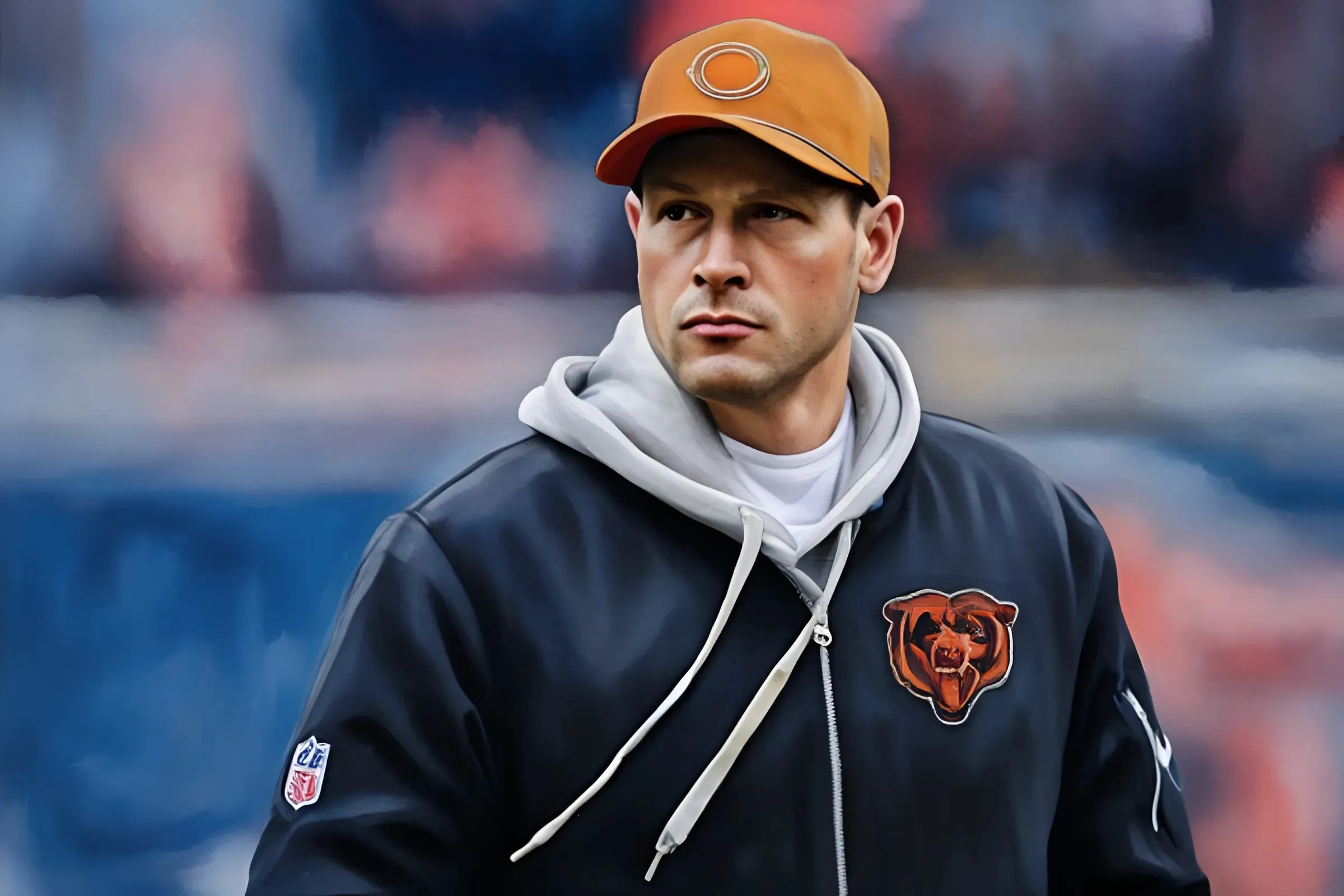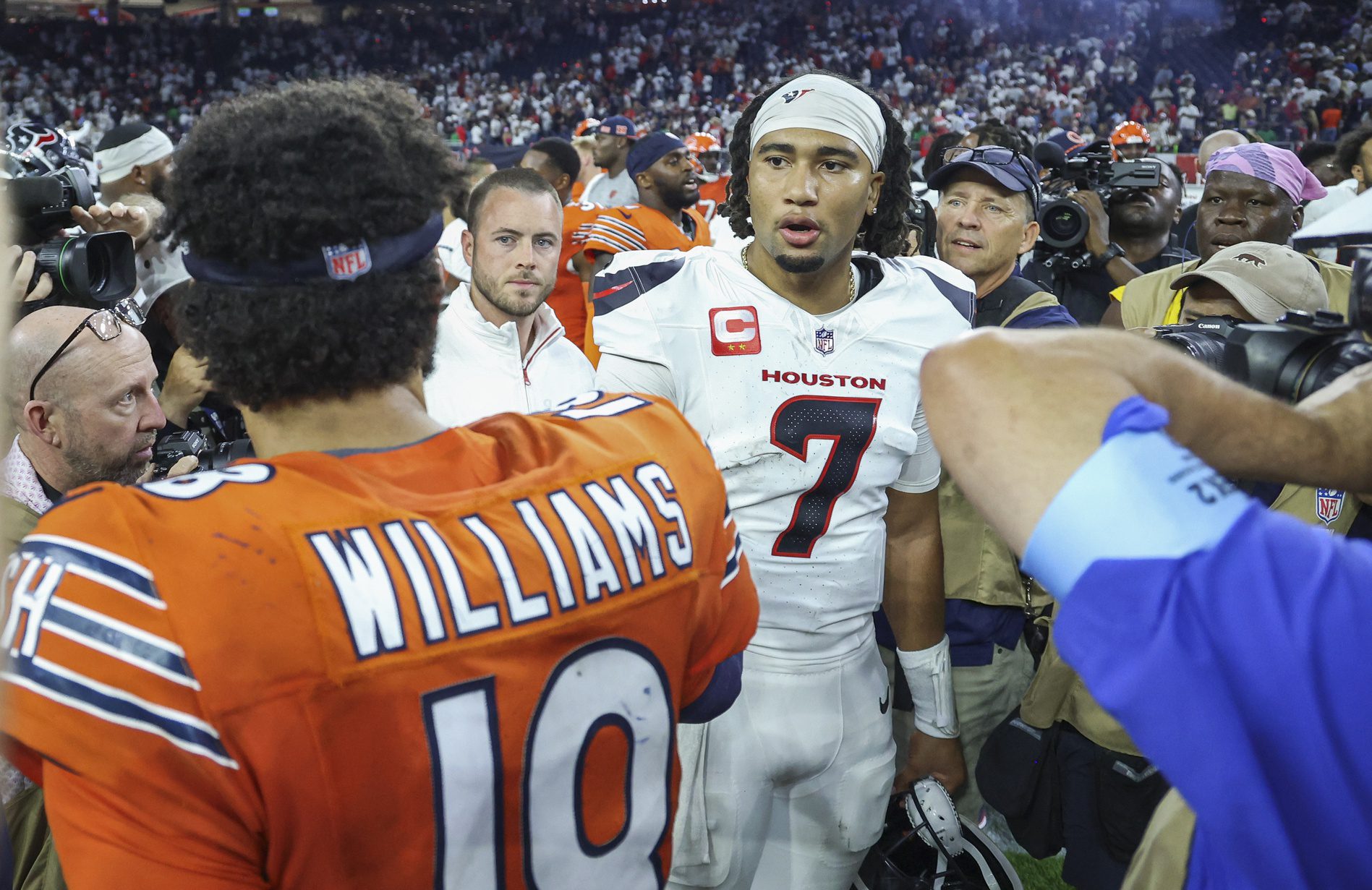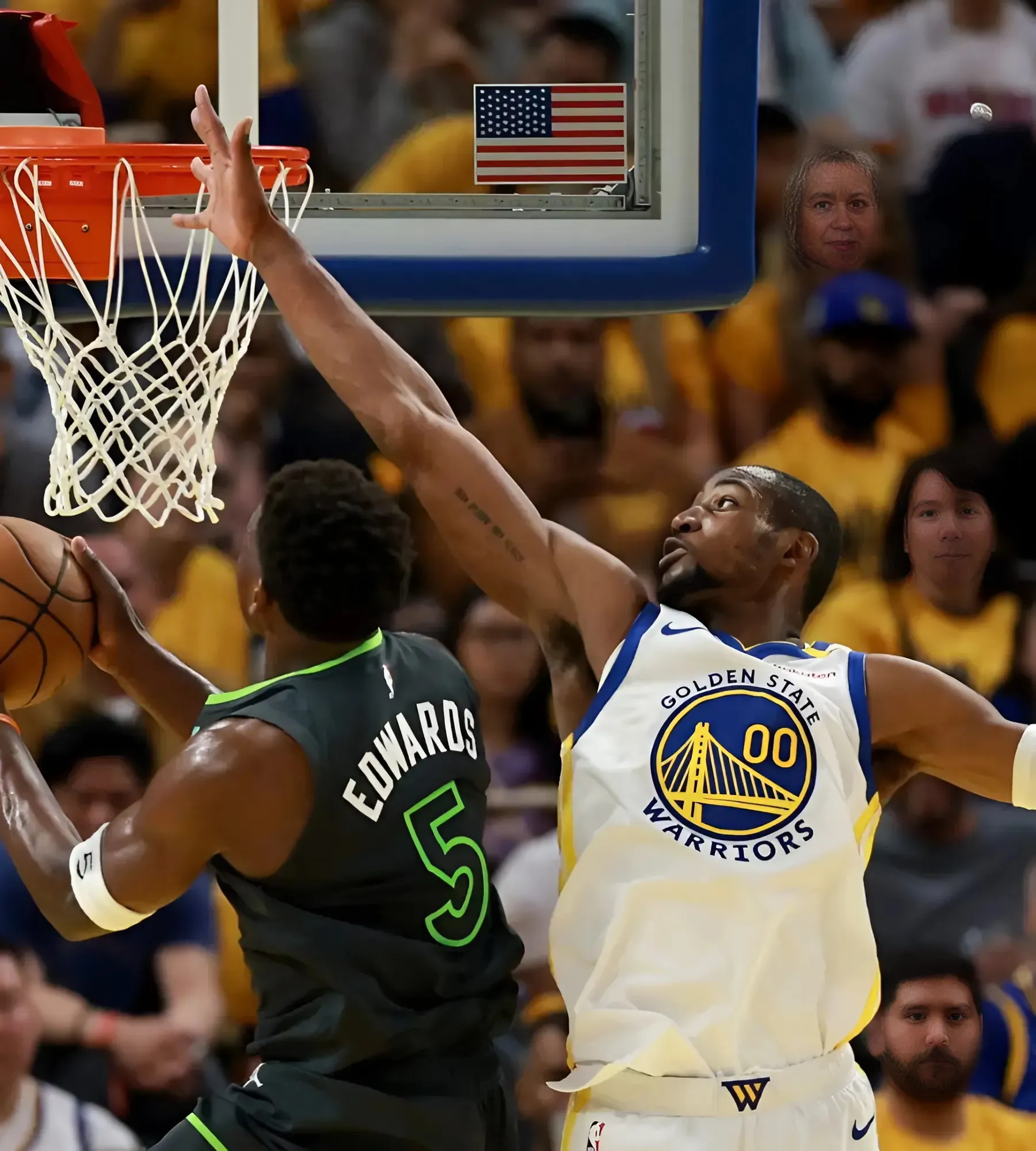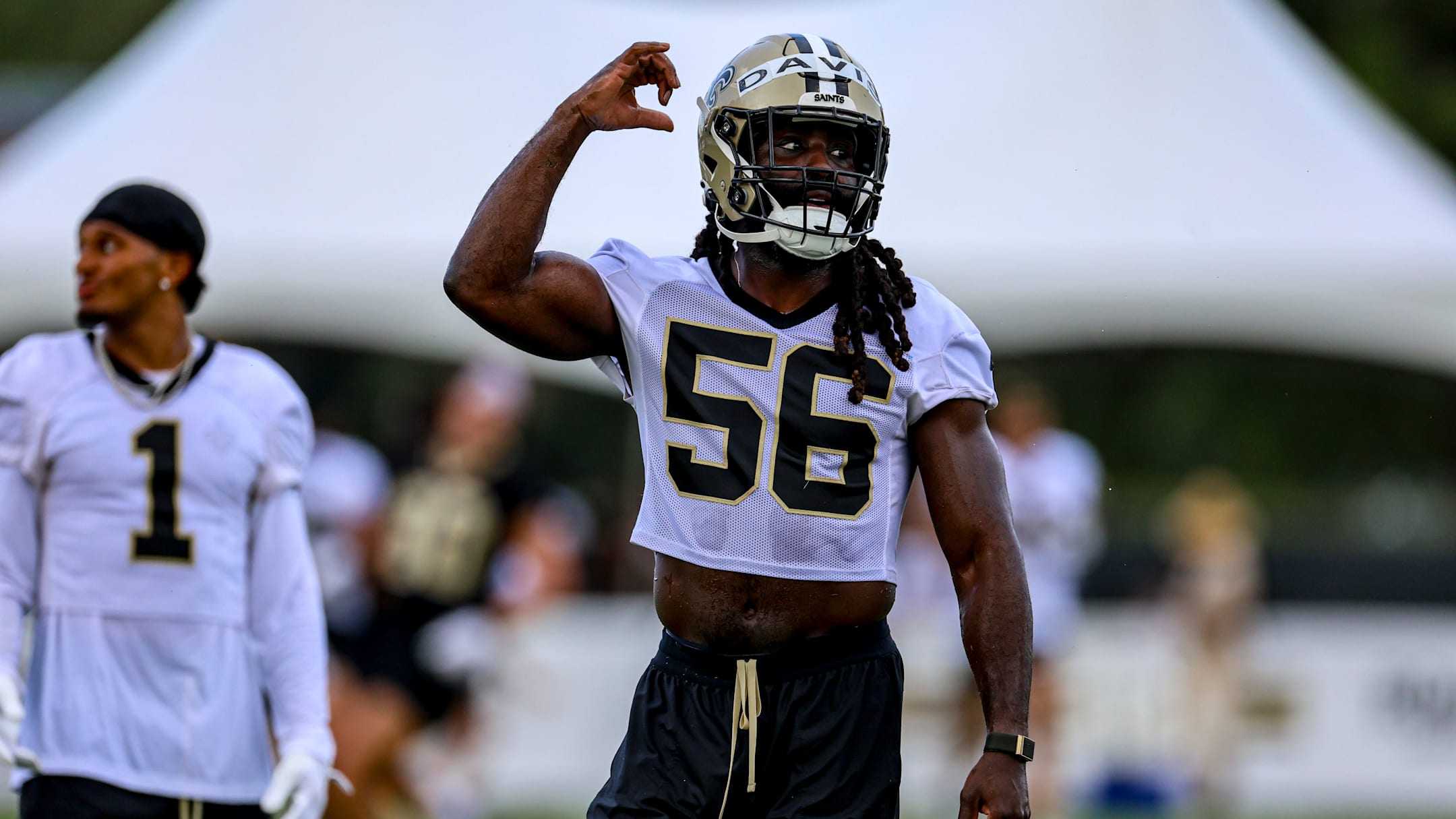LAKE FOREST, Ill. — With their first two picks of the NFL Draft, the Chicago Bears selected two more pass catchers for quarterback Caleb Williams.

DJ Moore, Rome Odunze, Luther Burden III, Colston Loveland and Cole Kmet — five players drafted in the first two rounds all on the same roster.
The Bears need situations like this. They need “good problems to have.” They need to not worry about it. It’s part of the reason general manager Ryan Poles hired coach Ben Johnson, to manage this effectively.
“I know that’s something he can handle, and he’s going to have conversations with the guys about just in terms of being selfless and doing what’s best for the team,” he said.
Johnson said he set that tone from Day 1 when veterans reported to Halas Hall three weeks ago.
“There is no depth chart right now,” he said Saturday night after the draft. “If you want to play, you’ve got to go earn it. If you want a role, you’ve got to go earn it. They know that.”
And what did the draft’s eight additions do for the roster?
“I think all we did this weekend is we might’ve just turned up the notch a couple of dials for certain people in the building,” he said. “That’s a good thing. That’s a healthy thing.”
When Poles acquired five starting linemen in March, that lessened the need to make sure the draft produced Day 1 starters, but it also meant he’d be in position to select players at positions with guys already seemingly entrenched.
Burden was the all-everything receiver at Missouri, now he’s the No. 3, likely becoming the new starting slot ahead of Olamide Zaccheaus. Kmet has been the No. 1 tight end for four years, now he’ll work with Loveland. Defensive tackle Shemar Turner joins Grady Jarrett and 2023 second-rounder Gervon Dexter. Ozzy Trapilo adds a wrinkle to the offensive tackle battle, potentially changing things up for everyone at that position.
With Johnson and defensive coordinator Dennis Allen in the draft room this time around, this draft class, Poles’ hopes, will get the Bears closer to what makes things difficult for a GM — success. The type of success that makes roster building challenging but the type of success that has long eluded the Bears.
“We’ve got to win football games, and I know that the more talent that you have on the team, the better your opportunity is to win games,” Poles said Friday night. “We haven’t won a lot of games here, so, yeah, things might be a little bit different. You may not be the only person, but at the end of the day, the goal is for us to win. And contracts, all of that stuff, that takes care of itself when you win.
“Actually, that’s my biggest fear is winning here, more than it is anything else, because that’s when it gets really hard, and I’ve lived that in Kansas City before I came here. And I’ve seen that same conversation. There’s one ball and someone’s going to be hot one week. Another person’s going to be hot the next, and we’ve got to support that person. If that means you’re blocking, whatever that means, you’ve got to do your part to your highest level so that we can win football games.”
The talk after this draft wasn’t necessarily how the Bears drafted athletically gifted prospects who had production question marks. It was more about adding “good football players.”
That’s what Detroit has done. Maybe Loveland at No. 10 was a “luxury pick,” just like taking Burden at No. 39 when there were still needs in the trenches. But the Bears have gone so long without a playoff win because they haven’t had enough good players.
The failures of 2024 included too many conversations about accountability and leadership and communication. Enter Johnson and a new era, and a draft class full of guys who ooze competitiveness.
Johnson does see that Loveland can play at a high level, but going to Michigan and talking to teammates and coaches, he learned more about the first pick of his time as head coach.
“Everybody was raving about him,” he said. “To see how he conducted himself, not only amongst his teammates, but walking through the building and interacting with the equipment staff and video staff, you could tell that he was so well respected.”
Johnson has coached in big games the past two seasons in Detroit. Loveland played in the national championship. That matters, too.
“He doesn’t bat an eye, he performs at a high level, and as we talk about where we’re going as an organization, and we’re going to be playing in these big games with the bright lights, we need guys that are going to rise up to the occasion,” Johnson said.
Next was Burden, who is “passionate about football,” director of college scouting Breck Ackley said.
“He’s an electric player, playmaker, highly competitive, and the run-after-the-catch is special — probably the best in this class,” Poles said.
When asked about how he and Williams can help each other, Burden said simply, “I feel like he’s a great quarterback. I feel like great quarterbacks need great receivers. Perfect fit.”
Turner reflects this draft class the most. His attitude on the field at times cost Texas A&M with penalties, but Allen, Poles and Johnson saw a player they wanted on their side.
“We want violence and we want knockback, right?” Bears director of player personnel Trey Koziol said. “And so if that was the goal, you look at a player like Shemar and he really embodies those two things: relentless, violence, changing the line of scrimmage. It really checks the boxes. It’s a good fit for scheme and culture and what we’re looking for.”
Trapilo, who couldn’t stop smiling during his media appearances, wouldn’t be a second-round pick if he were soft.
“It’s more of an under-control violence, I would say,” he said, describing his style of play. “Just playing nasty. Yeah, I would say that’s really the epitome of line play. The best linemen are the ones who play violent, but they also play under control, with discipline and technique while doing it.”
Good football players who play the game violently but under control. That’s what the Bears need. When discussing Turner’s intensity and “edge,” Poles said there will be “some rough training camp days with some fights.” That’s the competition Johnson wants.
“I think that’s good, though,” he said. “It just raises the level of intensity for our entire football team.”
Poles rounded out the draft with an ultra-fast linebacker (Ruben Hyppolite II), a long and fast corner with ball production (Zah Frazier), an interior offensive lineman who held his own versus two of the draft’s top defensive tackles (Luke Newman), and a back who won’t wow anyone athletically but got the job done over and over again in the Big Ten (Kyle Monangai).
The theme of any draft is “time will tell.” We can’t truly judge this class for some time. All we can do now is analyze how a player fits what a team needs based on what we know.
Platitudes for draftees can seem similar in a building like Halas Hall, where we’ve experienced excitement from GM to GM and head coach to head coach. In ridding the building of the taste of the 2024 season, Poles set out to hire Johnson, and their first class together has tough football players who were highly productive in college.
The Bears didn’t seem to overthink it, even if they didn’t address the trenches the way fans wanted. Loveland was a consensus top-15 player. Burden was widely thought to be a good value pick considering what he’s capable of. The list of negatives isn’t very long for Trapilo and Turner — they’re solid football players. Even the Bears’ last pick, Monangai, could find his way into the backfield based on what he did at Rutgers with back-to-back 1,200-yard seasons.
“I think the goal at the end of the day is get good football players in here,” Ackley said when discussing Burden and the plentiful weapons. “So yes, one ball, one player getting the ball at all times. But I think what you’ve seen in the league, really, the more weapons are on the field, it changes the way the defense plays you.
“That’s the mindset now of Coach Johnson — the creativity, what it allows everybody to do, and the multiplicity it gives you. That’s the mindset we had in adding a player.”



